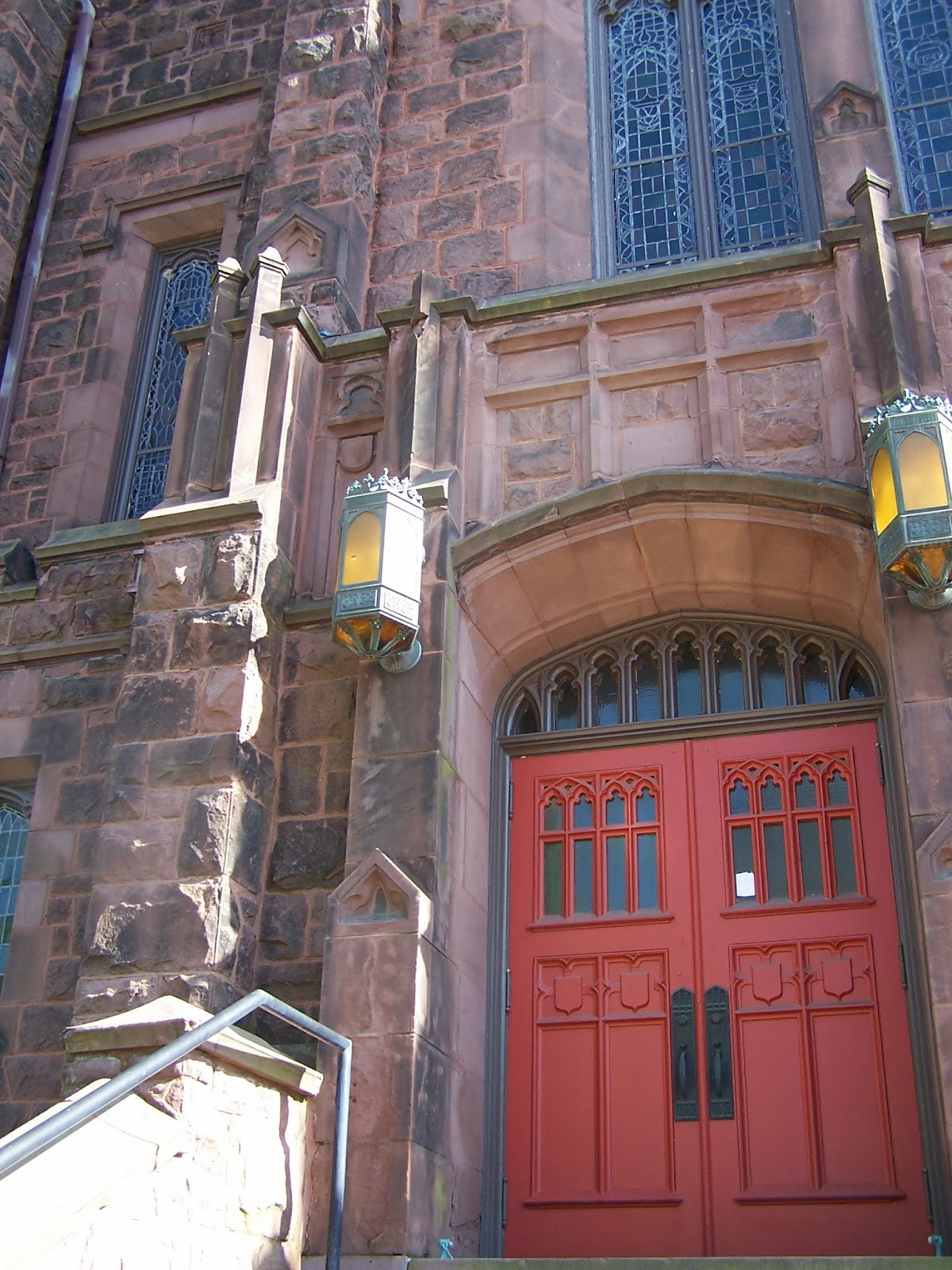The story of Adolphus gives an
excellent illustration of providing a door of empathetic graciousness to others. It is from the book Church: Why Bother?
“I learned an enduring lesson about
what grace looks like in action from my church’s response to Adolphus, a young
black man with a wild, angry look in his eye.
Every inner-city church has at least one Adolphus. He had spent some time in Vietnam, and most
likely his troubles started there. He
could never hold a job for long. His
fits of rage and craziness sometimes landed him in an asylum.
“If Adolphus took his medication on
Sunday, he was manageable. Otherwise,
well, church could be even more exciting than usual. He might start at the back and high hurdle
his way over the pews down to the altar.
He might raise his hands in the air during a hymn and make obscene
gestures or he might wear headphones and tune in to rap music instead of the
sermon.
“As part of worship, LaSalle had a
time called ‘Prayers of the People.’ We
would all stand, and spontaneously various people would call out a prayer–for
peace in the world, for healing of the sick, for justice in the community
around us. ‘Lord, hear our prayer,’ we would respond in unison after each spoke
request. Adolphus soon figured out that
Prayers of the People provided an ideal platform for him to air his concerns.
“‘Lord, thank you for creating
Whitney Houston and her magnificent body!’ he prayed one morning. After a puzzled pause, a few chimed in
weakly, ‘Lord, hear our prayer.’
“‘Lord, thank you for the big
recording contract I signed last week, and for all the good things happening to
my band!’ prayed Adolphus. Those of us
who knew Adolphus realized he was fantasizing, but others joined in with a
heartfelt ‘Lord, hear our prayer.’
“Regular attenders came to expect
the unexpected from Adolphus’s prayers.
Visitors had no idea what to think: their eyes would snap open and their
necks would crane to get a look at the source of these unusual prayers.
“Adolphus called down judgment on
all the white people in the church who had caused Mayor Harold Washington such
stress that he had a heart attack. He
railed against President George Bush who sent troops against Iraq while people
were being killed in the streets of Chicago.
He gave regular reports on the progress of his music group. Some of these prayers we met with an awkward
silence. Once Adolphus prayed ‘that the
white honkey pastors of this church would see their houses burn down this
week.’ No one seconded that prayer.
“Adolphus had already been kicked
out of three other churches. He
preferred attending an integrated church because he enjoyed making white people
squirm. Once he stood up in a Sunday
School class I was teaching and said, ‘If I had an M-16 rifle I would kill all
you people in this room.’ We white
people squirmed.
“A group of people in the church,
including a doctor and a psychiatrist, took on Adolphus as a special
project. Every time he had an outburst,
they pulled him aside and talked it through, using the word ‘inappropriate’ a
lot. ‘Adolphus, you anger may be
justified. But there are appropriate and
inappropriate ways to express it. Praying
for the pastor’s house to burn down is inappropriate.’
“We learned that Adolphus sometimes
walked the five miles to church on Sunday because he could not afford the bus
fare. Members of the congregation began
to offer him rides. Some invited him
over for meals. Most Christmases, he
spent with our assistant pastor’s family.
“Boasting about his musical talent,
Adolphus asked to join the music group that sang during communion
services. It turned out that he had
absolutely no musical ability. After
hearing him audition, the leader settled on a compromise: Adolphus could stand
with the others and sing, but only if his electric guitar remained
unplugged. Each time the group performed
thereafter, Adolphus stood with them and sang and played his guitar, which,
thankfully, produced no sound. Generally
this compromise worked well, except for the Sundays when Adolphus skipped his
medication and felt led to do a gyrating Joe Cocker imitation across the
platform as the rest of us lined up to receive the body and blood of Christ.
“The day came when Adolphus asked to
join the church. Elders quizzed him on
his beliefs, found little by way of encouragement, and decided to put him on a
kind of probation. He could join when he
demonstrated that he understood what it meant to be a Christian, they decided,
and when he learned to act appropriately around others in church.
“Against all odds, Adolphus’s story
has a happy ending. He calmed down. He started calling people in the church when
he felt the craziness coming on. He even
got married. And on the third try
Adolphus was finally accepted for church membership.
“Grace comes to people who do not
deserve it, and for me Adolphus came to represent grace. In his entire life, no one ever invested that
kind of energy and concern in him. He
had no family, he had no job, he had no stability. Church became for him the one stable
place. It accepted him despite all he
had done to earn rejection.
“The church did not give up on
Adolphus. It gave him a second chance,
and a third, and a fourth. Christians
who had experienced God’s grace transferred it to Adolphus, and that stubborn,
unquenchable grace gave me an indelible picture of what God puts up with by
choosing to love the likes of me. I now
look for churches that exude this kind of grace.”
(Church: Why Bother? My Personal
Pilgrimage: Philip Yancey, Zondervan Publishing; 1998, p. 34-37)

















